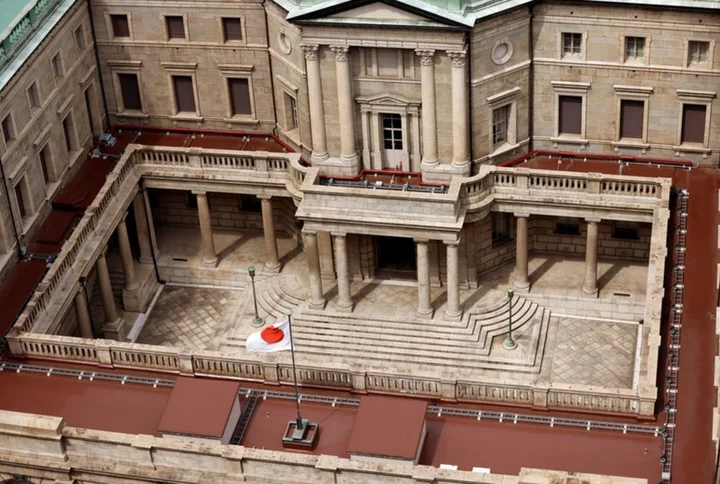By Takaya Yamaguchi
TOKYO The Bank of Japan could raise its 1% hard cap set for long-term interest rates as its next policy move if the 10-year bond yield threatens to breach that level, Columbia University academic Takatoshi Ito told Reuters in an interview.
Under its yield curve control (YCC) policy, the BOJ guides short-term interest rates at -0.1% and the 10-year bond yield around 0%. It also has an allowance band of 50 basis point set either side of the yield target, as well as a hard cap of 1.0% adopted in July.
Rising U.S. Treasury yields and market expectations of a near-term BOJ policy tweak pushed up the benchmark 10-year Japanese government bond (JGB) yield to a more than one-year high of 0.805% on Wednesday - edging closer to the 1.0% ceiling.
Ito said the BOJ's decision to raise the de-facto ceiling to 1.0% from 0.5% was made at the right time and reflected the bank's hopes of avoiding being forced to ramp up bond purchases.
The BOJ's next move will largely depend on how soon it raises its inflation forecasts for fiscal 2024 and 2025, he said on Thursday.
"The inflation forecasts could be revised up in October or next January," when the BOJ conducts a quarterly review of its growth and price forecasts, Ito said.
"If the 10-year yield approaches 1% as a result, the BOJ could raise the ceiling again," said Ito, a close associate of former BOJ Governor Haruhiko Kuroda who retains ties with incumbent policymakers.
Under current projections made in July, the BOJ expects core consumer inflation to hit 2.5% in the year ending in March 2024 before slowing to 1.9% in 2024 and 1.6% in 2025.
With inflation exceeding the BOJ's 2% target for more than a year, many analysts expect the board to revise up this year's price forecast.
But there is uncertainty on whether it will push up the estimates for 2024 and 2025 - more crucial to the timing of a policy shift - as much will depend on the wage outlook.
Ito said the BOJ will need strong justification to end negative interest rates, as even an increase to zero from -0.1% in the short-term rate target could be interpreted by markets as a first step toward policy normalisation.
"The BOJ needs to confirm that wages will rise strongly. As such, an end to negative rates would come in April at the earliest," he said.
A Reuters poll in September forecast that negative rates will end some time next year.
(Reporting by Takaya Yamaguchi, writing by Leika Kihara; Editing by Shri Navaratnam)

